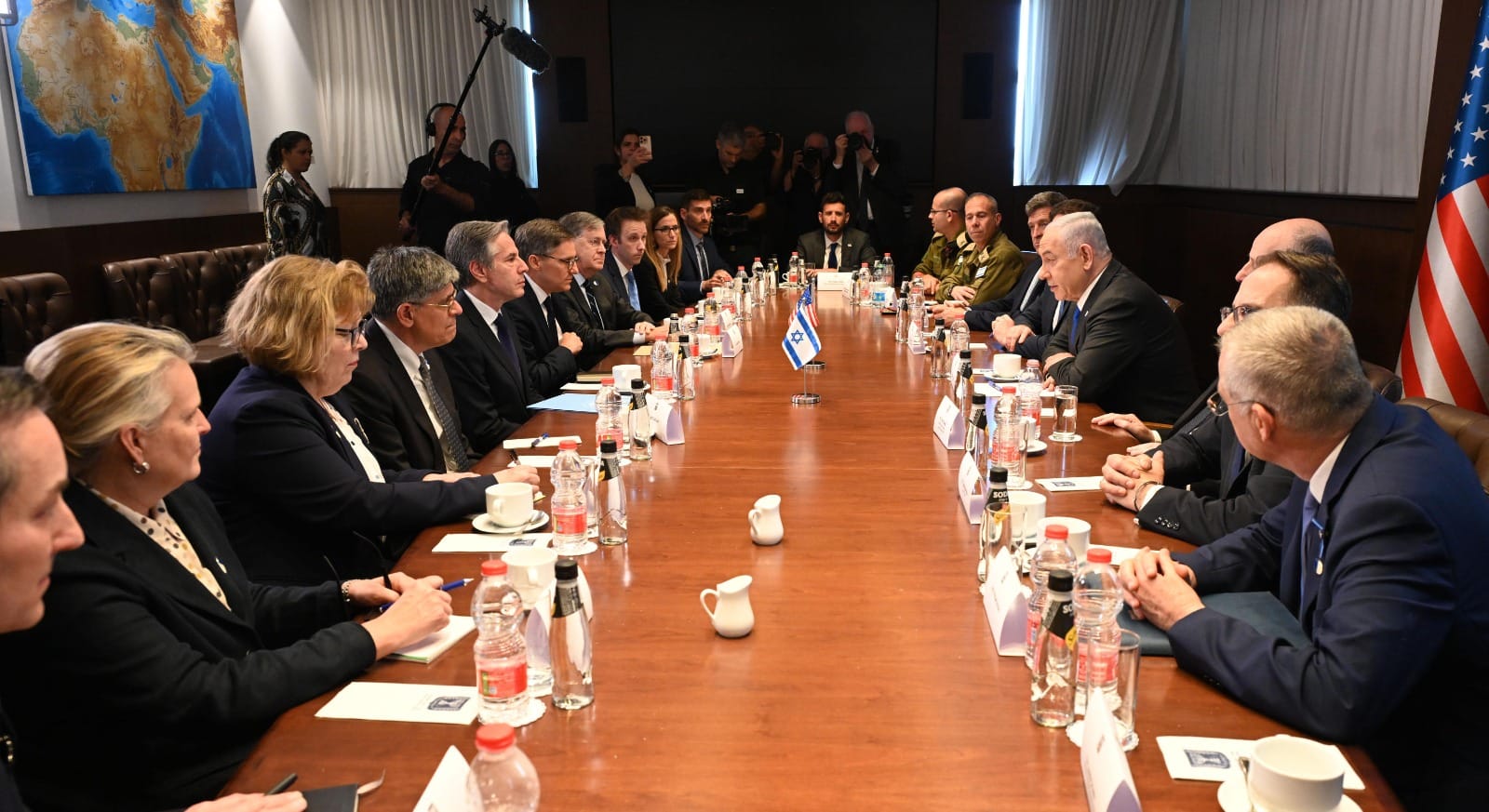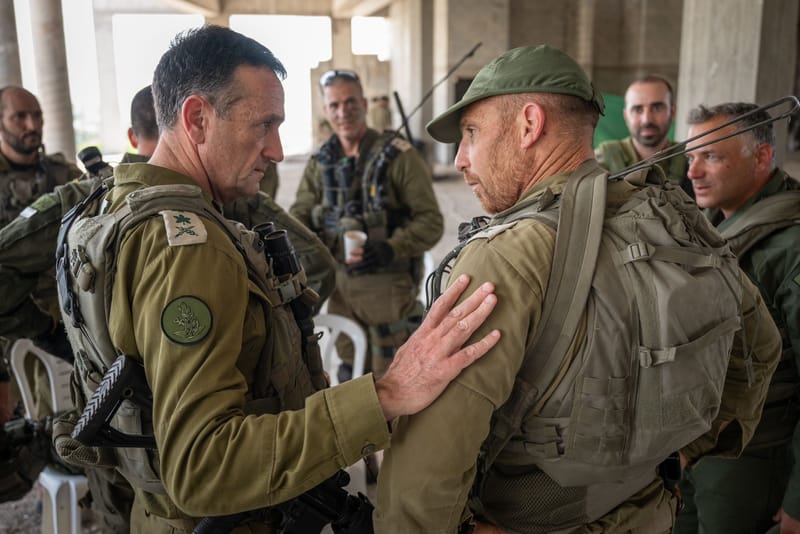Secret Talks: Saudi-Israel Normalization Deal Hangs on Israeli Concessions
Supposedly, Secretary Blinken briefed Prime Minister Netanyahu on Saudi Arabia's purported eagerness to finalize a normalization deal with Israel.
Israeli Prime Minister Benjamin Netanyahu and US Secretary of State Antony Blinken convened for a private meeting at the Prime Minister's Office in Jerusalem on Wednesday. The meeting, which was followed by an expanded session, signifies the ongoing diplomatic efforts between the two nations amidst regional challenges.
The expanded meeting saw the participation of key figures from both Israeli and American administrations. Among the attendees from Israel were the Strategic Affairs Minister, the Director of the National Security Council, the Prime Minister's Chief-of-Staff, the Prime Minister's Military Secretary and his successor, the Prime Minister's Foreign Policy Adviser, and the Israeli Ambassador to the US. Representing the United States were the US Ambassador to Israel, the Assistant Secretary of State for Near Eastern Affairs, and the Special Envoy on Middle East Humanitarian Issues.
A significant topic of discussion during the meeting was the improved delivery of aid to Gaza. Secretary Blinken reiterated the importance of accelerating and sustaining this improvement, underscoring the humanitarian concerns in the region.
Supposedly, Secretary Blinken briefed Prime Minister Netanyahu on Saudi Arabia's purported eagerness to finalize a normalization deal with Israel. This urgency arises from Saudi Arabia's alleged desire to secure the agreement before any potential return of Donald Trump to the White House. Reports suggest that Saudi leaders are aiming for a comprehensive deal that would encompass a security pact with the United States, civilian nuclear assistance, and formal diplomatic recognition of Israel. In exchange, Israel would need to refrain from an invasion of Rafah and provide a clear path towards establishing a Palestinian state. If realized, this would represent a notable transformation in the region, potentially ending the historical isolation of the Jewish state.
Simultaneously, families of captives gathered outside the hotel where Secretary Blinken was staying, urging for the release of their loved ones. In a gesture of solidarity, Secretary Blinken addressed the families, expressing support for their cause and emphasizing the need for progress in negotiations for their release.
Following his meeting with Prime Minister Netanyahu, Secretary Blinken is expected to meet with Minister Benny Gantz and visit the port of Ashdod.
John Kirby, the White House National Security Council spokesperson, clarified that there has been no change in the Biden administration's stance regarding a broader ground operation in Rafah. Responding to Prime Minister Netanyahu's remarks regarding Israeli action in Gaza, Kirby highlighted Washington's concern for the safety of the approximately one and a half million residents in the Gaza Strip who have sought refuge in Rafah and its surroundings. He noted the absence of concrete plans to ensure their safety.
The exchange between the Israeli and American officials underscores the complexity of the situation in the region and the ongoing efforts to address both humanitarian concerns and security challenges. As diplomatic engagements continue, the focus remains on finding viable solutions to promote stability and peace in the Middle East.







